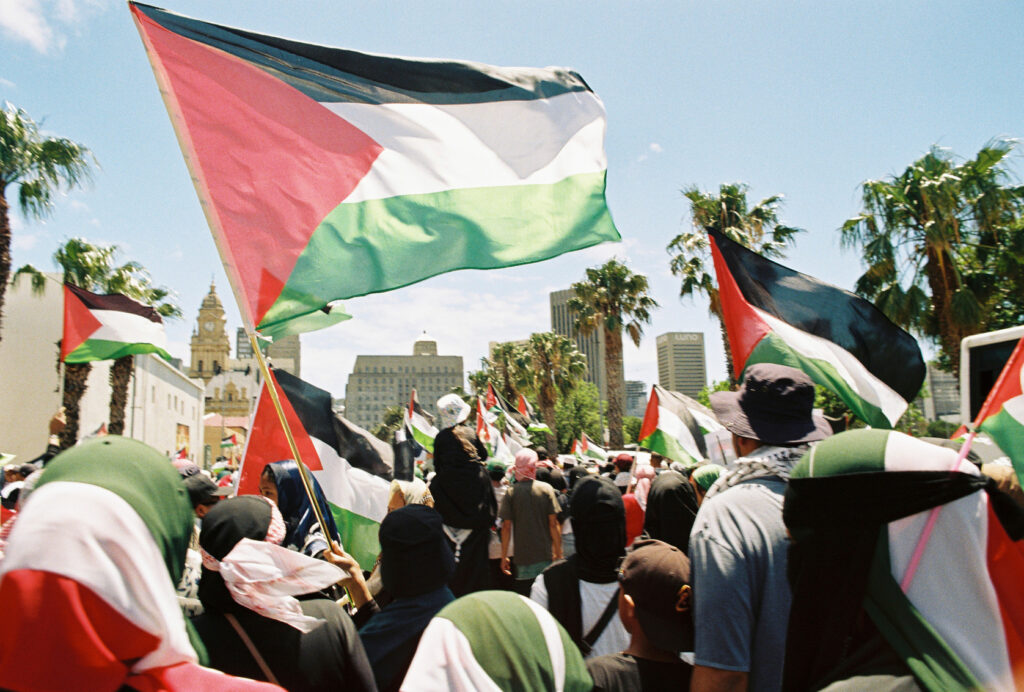“Man of peace.” “Instrumental in securing the Gaza ceasefire.” Is this how one describes a dictator intent on forcibly displacing and ethnically cleansing Gazzawis in order to seize control, stripping them of their right to return?
These words of endearment were how the ever-so-beloved King Abdullah II characterized his meeting with President Donald Trump at the White House in mid-February 2025. We should not be surprised.

This performance is the latest episode in the long, cynical history of Hashemite-Zionist collusion — a pact that stands in stark contrast to the region’s widespread anti-Zionist sentiment. This covert alliance has long thrived off of the subjugation of Palestinians — an ideology central to Zionism. The following history proves this collaboration is a defining feature of Jordan’s political strategy and thus should serve as a call to action for Jordanians.
Since its inception, Jordan has strategically positioned itself as a regional peacekeeper. Yet, this century-old façade is underscored with collusion that sets the stage for the occupation and genocide of Palestine. Jordan’s vicious, endless betrayal persists to the modern day — when Palestinians need unwavering solidarity the most, as the illusion of a ceasefire is upended.
The cooperation dates back to 1922, when Jordan’s first King, Abdullah I, offered to Chaim Weizmann, a major player in the World Zionist Organization, state recognition of a “national home for the Jewish people.” This recognition was contingent on the Zionist regime’s acceptance of Abdullah as king of Palestine. While this scheme was not realized, it set a critical precedent — Jordan’s precarious balancing act between upholding its identity as mediator and colluding with Zionists to advance its own colonial ambitions.
This balancing act is on full display at a secret meeting in 1947 between King Abdullah and Golda Meir, acting head of the Political Department of the Jewish Agency, on a plan for his annexation of the Arab portion of Palestine. By the end of the meeting, he was prepared to sign a formal, written statement denoting a favorable Zionist response to his annexation of the West Bank and a Hashemite non-aggression pact towards Zionist forces. Publicly, though, upon the passing of the UN partition plan twelve days later, he deployed his military to shield the Palestinians from the Zionists.
This front continued to be fortified through King Hussein’s messy disengagement from the West Bank in 1988. In his “Address to the Nation” announcing the severing of ties, he touted the Kingdom’s role as mediator: “Jordan will continue its support for the steadfastness of the Palestinian people.” What he did next, nonetheless, contradicted his earlier sentiment completely. Citizenship was soon thereafter restricted for those residing in the West Bank. Not only was this group reclassified as Palestinian, but also reduced to political pawns who were only able to obtain Jordanian passports valid for two years.

Palestinians decoded the Jordanian government’s agenda as early as the invasion of King Abdullah’s army. Palestinians waged their own guerrilla warfare the next day, refusing entrance of other Arab armies because their supposed “protection” cloaked territorial aspirations. Because Palestinian resistance thwarted Abdullah’s goals, Transjordan denounced and squashed their guerilla army warfare. Abdullah fundamentally disregarded the political agency of the Palestinian people because he chased after what would be most politically profitable.
Again at the onset of 1988 Palestinians decrypted the Hashemite’s deceit and remained steadfast to the intensifying fire of the First Intifada. The purpose of this resistance movement was to reject attempts by any outside power to subsume and govern them, Hashemite and Zionist included. That attempt, though, was brought into the Hashemite fold for their political gain: to re-emphasize their crucial duty as upholder of regional stability. This Hashemite manipulation of a mass uprising led to the 1993 Oslo Accords, widely-despised for normalizing the existence of the Zionist state.
They need to see the Kingdom for what it truly is: an imperial power that merely pursues what is politically profitable for them at any cost, including their own lives. They are the next sacrificial lambs. Their government is also interested in annihilating their Palestinian identity, nationalizing them to exclusively Jordanians.
They are Palestinian. There is no ‘us’ and ‘them.’ They must reject our government’s imperialistic need to divide and conquer them by creating the illusion of taking the ‘inferior’ Palestinians under their wing. In fact, the Palestinians in Jordan are under theirs. Palestinian resistance is more than a mere message to Jordanians about the colonial motivations of our government — it should serve as a guide for Jordanian revolution.
Some understand the stakes: at least 1,500 Jordanians have been arrested between October 2023 and April 2024 for protesting for Palestine. We must increase this organized pressure. Criticize your government for not growing a spine and standing up for Palestine. Actively dissent. Make it so it is more costly to not listen than listen. By continuing to apply tactful pressure, as the 1,500 arrested and counting have, your complicit government has no other choice but to listen to your rallying cries.
Jordanians owe it to their on-the-ground Palestinian family members and to themselves.
